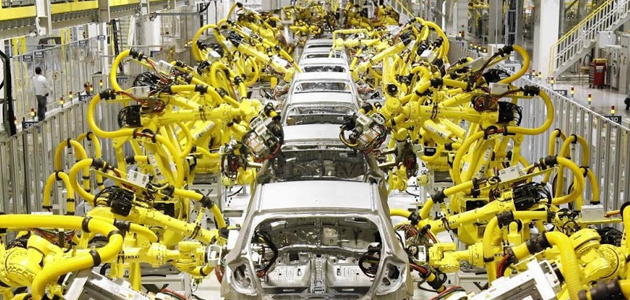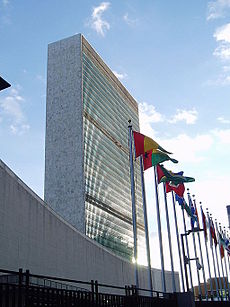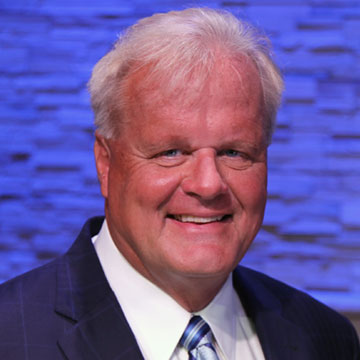With God in the age of disruption
Why this could be our finest hour if we seize the opportunity before us.By Peter Youngren
CHANGE is constant, but to say that we are living in changing times is an understatement – this is the Age of Disruption. Ideas, traditions and systems, as we have known them, are dissolving. We are surrounded by smart phones and sensors; we shop online while retailers we have known all of our lives close shop. We talk about driverless cars and though none of us have ever owned one, we probably will someday. Values that have seemed unshakable for generations are questioned and many are changing rapidly.
If the foundations are destroyed, what can the righteous do?
Happy, clappy statements about an impending great revival will not do – we need the gospel.
Communication disruption.
During an average minute, just one minute, almost 1 million people log into Facebook, there are close to half a million tweets, 156 million emails and 15 million text messages. For the last decade, these numbers have been doubling on the average every two years.
Work disruption.
When machines do the work that humans previously did the obvious question is: what are humans to do? Truck drivers, factory workers and office clerks wonder if their jobs will be there in 10 years.
Artificial Intelligence [AI] is disrupting.
This is what enables computers and machines to do what humans used to do. As I prepare this article, there is news that China has announced its plan to lead the world in artificial intelligence in 10 years. Computers can see [facial recognition software], read [that’s how your social media messages are analyzed], and speak [the phone, car or Amazon’s Alexa talking to you]. Speaking of Alexa, one of the most popular gifts this past Christmas, this gadget demonstrates that AI also listens. If you say, “Alexa, wake up”, there is a response, which means you didn’t really wake up your gadget. It was awake the whole time, or how else could it have heard your command. AI will change healthcare. Why wait in a doctor’s office when you can have a smartphone tell your blood pressure and sugar levels. 3D printers, virtual personal assistants, hologram technology, implanted microchips, robotic medical assistants, what’s next? Robots leading worship? I hope not.

When machines do the work of humans, what are humans to do?
Migration disruption.
Political disruption.
Nature is in disruption.
Values are disrupted.

The church is in disruption.
Face reality.
The proverbial ostrich needs to pull its head out of the sand. Times of great struggle are times of great opportunities, but not without facing reality. Happy, clappy statements about an impending great revival will not do. Creative speculations about blood moons and the end times are not helpful. Calls to prayer that do not result in action will disappoint. It’s time to assess our message [is it really the gospel?] and our prayers [are we waiting for God to move, or should we move with what God has already given to us?].
Recognize that Cultural Christianity is insufficient.
In our attempt to present our faith in the marketplace we have become skilled at using coded language, rather than “bearing Jesus’ name” before people. We try to win people by talking about Christian values, about our church, about our pastor, about our program rather than about Jesus Christ. To speak up for Christian morality is not the same as presenting the gospel. Good morals do not come from upholding good morals; good morals are the results of the gospel changing hearts. The gospel is not behavior modification; it’s heart transformation. And once the heart is changed, things will change also on the outside.
Rediscover the gospel.
You, with Christ, are the solution.
We are not consumers of ministry, worship and sermons; Jesus said we are the light of the world. We are not waiting for God to move; he already moved 2000 years ago by sending Jesus Christ. Too much pining, begging for God to bless, anoint and empower us! It’s time to see that you have something. You have the bread of life and you’ll never be hungry again. You have the fountain of living water and you’ll never thirst again. We are not longing and yearning for something out of our reach. The Scripture is clear; we have all [not just a few of us] received Christ fullness. Like Simon Peter we say, what we have we give you!
A strategy for migrants.
Rediscover prayer.
Offer abundant life.

Take courage from the story of Moses.
Moses lived in an age of disruption. Israel had been a favored nation just a generation earlier, but by the time Moses was born there was political upheaval, and Israel had become slaves.
Moses tried to handle the problems of his time in this own strength. His well-intentioned attempt to deliver Israel only made him a laughingstock. That’s not untypical. The Bible is full of examples of people who tried in their own strength but failed.
Moses encountered God. The angel of the Lord appeared to him in flames of fire within a bush, Exodus 3:2. I suggest that Moses, an ordinary man, saw himself in that very ordinary desert bush. But he also saw God in the bush. A bush, by its nature, cannot contain fire, because fire consumes it. That’s what God does with ordinary people; he transforms them. To encounter God is much more than a feeling. Sometimes people talk about experiencing God’s presence, but it doesn’t seem to bring a lasting change. It’s just an emotion, a good feeling during a worship service. The God encounter I’m talking about is transformational; you are forever changed.
Moses made new choices. He refused to be called the son of Pharaoh’s daughter, and chose instead to be mistreated along with the people of God. Life is a trade-off. When you refuse one thing you get to say “yes” to another.
The scripture explains the change in Moses’ behavior. It happened because he saw Him, who is invisible, and therefore he didn’t fear the king’s anger. There is fear of being rejected, fear of failure, fear of losing friends or having no money. Fear results in negative choices. Love conquers fear, and causes faith to flourish. Faith causes us to see ourselves as we really are in Christ. An encounter with God results in new choices.
When everything is shaken, Christ is not, His ultimate victory is certain. That motivates me to keep going in the age of disruption, because this is our finest hour, if we seize the opportunity for the Gospel.
Too much pining, begging for God to bless, anoint and empower us!
The kind of God encounter I’m talking about is transformational; you are forever changed.

